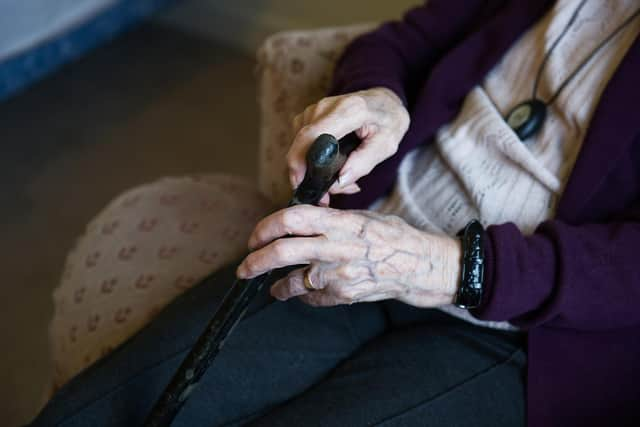£1.8m plans drawn-up to roll-out assistive technology across Hertfordshire
and live on Freeview channel 276
ADULT care bosses have drawn-up £1.8m plans to support vulnerable adults to live independently, by rolling out ‘assistive technology’.
‘Assistive technology’ can be used to monitor whether elderly or frail residents are moving around in their own homes, whether they are drinking enough or whether they are taking medication.
Advertisement
Hide AdAdvertisement
Hide AdAnd that can improve independence by enabling frail, vulnerable or elderly residents to stay at home, create ‘greater efficiencies in social care’ and provide reassurance for families.


Over the past two years the greater use of ‘assistive technology’ has been trialled by the county council.
And during that time council staff have developed their own ‘assistive technology solution’.
This ‘Assistive Technology solution’ is said to visualise the complex data gathered from equipment installed in the home.
Advertisement
Hide AdAdvertisement
Hide AdAnd, in turn, it provides professionals with insights into potential developing care needs – while offering assurance to family members.
Now adult care chiefs have drawn-up plans to make the provision ‘business as usual’ across the county.
They also plan to explore whether the council’s ‘Assistive Technology solution’ could be commercialised to bring in an income.
On Thursday (July 6) the proposals were backed by a joint meeting of the council’s resources and performance and adult care heath and wellbeing cabinet panel.
Advertisement
Hide AdAdvertisement
Hide AdAnd a final decision on whether to roll out the technology – and to invest in a bid to commercialise it – will be taken on Monday (July 10), at a meeting of the council’s cabinet.
Much of the discussion at Thursday’s meeting – which unanimously backed the proposals – took place behind closed doors.
Exact details of the ‘Assistive Technology solution’ were not presented publicly.
But executive director of adult care services Chris Badger told councillors that for residents the ‘unobtrusive’ technology involved a set of sensors that detects things like movement that could indicate a change in behaviour.
Advertisement
Hide AdAdvertisement
Hide AdHe said, that could be linked to more traditional elements of assistive technology that may highlight a fall.
And he said it built on existing assistive technology ‘but takes it to a more sophisticated analytical level’.
Also in the public part of the meeting questions were raised about intellectual property (IP) and the requirement for safeguarding.
Director of planning and resources Jackie Albery stressed that consent would be needed for the installation of the technology that would monitor their ‘movements and various things’.
Advertisement
Hide AdAdvertisement
Hide AdAnd so she said it would only be available to those residents who had the capacity to consent.
As well as offering reassurance, she said it could be a way of residents who wanted to remain at home to show relatives that they were safe to do so.
A report presented to the meeting of the panels also highlighted a need to deliver social care differently.
“With rising demand for social care support alongside an ongoing reduction in resources, social care will have to be delivered differently,” says the report.
Advertisement
Hide AdAdvertisement
Hide Ad“The department needs to focus on opportunities to prevent, reduce and delay the need for social care services, to successfully minimise the need for local authority funded support.
“This will be achieved by making full use of community support underpinned by personalised, progressive support that maximises independence and the use of new technology offer a real opportunity to meet needs more effectively.”
Following the private session and the vote, executive member for resources and performance Cllr Bob Deering stressed that regardless of any future commercialisation, it was ‘a good thing’.
And he said: “I think we all feel it’s important that we protect the IP.
Advertisement
Hide AdAdvertisement
Hide Ad“But, in principle, the first and foremost thing that is good about this is it is a good thing. And we are doing a good thing.
“If we are able to move forward and develop some commercialisation from it, that would be an additional benefit.
“But I think we have acknowledged that you envisage a step by step process there – and we welcome that as well.
In addition to the £1.8m to roll out the technology as ‘business as usual’ in Hertfordshire, the ask is for a further £1.3m for future commercialisation – with an initial sum of £300,000 for a wider product trial.